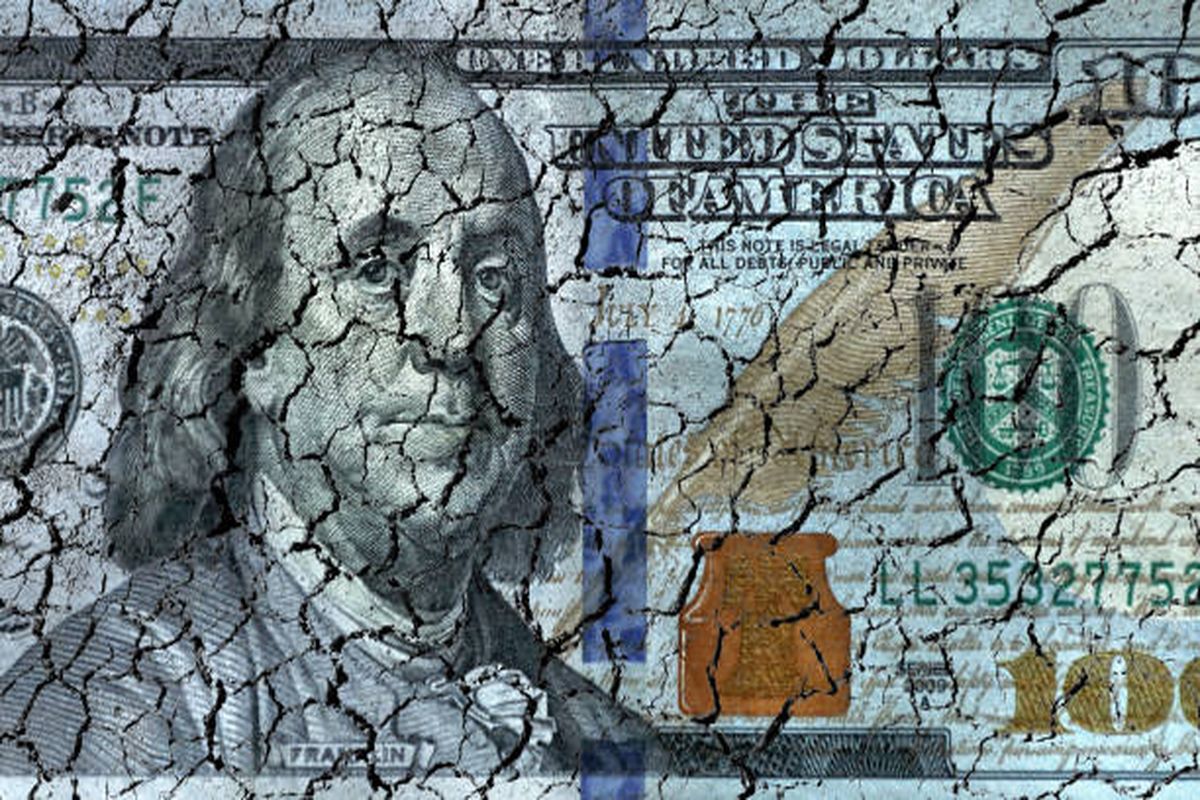De-dollarization means replacing the dollar with other currencies. If a small percentage of the dollar liquidity is directed to cryptos, it could pump prices massively in the long term. But, all that is not assured by any means.
If you have been keenly following the discussions on Crypto Twitter in recent weeks, you might have come across the term de-dollarization. This debate is everywhere now and even mainstream media seems to be talking about it.
For nearly 80 years, since the end of the Second World War, the U.S. dollar has been the currency of the world.
But what if that ended? pic.twitter.com/Jl5T1cxf2O
— Tucker Carlson (@TuckerCarlson) April 6, 2023
With everyone now speculating about “the dollar is going to zero!!!” how will it affect the crypto space?
De-dollarization is the process of substituting US dollars as the primary currency for trading oil and other commodities, bilateral trade agreements, and dollar-denominated assets with another medium of exchange.
So far, this discussion has hit the mainstream media with headlines that suggest China and other major economies are transacting with their local currencies when participating in different international trade transactions. For instance, China-Russia Yuan-denominated trade is reportedly reaching record highs.
Although the de-dollarization process seems to be adopted by even the developing economies, most of them are using the Chinese Yuan. Analysts now ask, will de-dollarization help in currency decentralization or will the US dollar be replaced by the Chinese Yuan eventually?
Related: Crypto Industry Problems Intensify As More Banks Shut Down
"If we lose our currency, that's the equivalent of losing a world war"
Former US President Donald Trump expresses grave concern over the de-dollarization trend taking over more and more countries around the world. pic.twitter.com/8Fnl1kNnhB
— PressTV Extra (@PresstvExtra) April 16, 2023
For now, people are panicking that the dollar’s dominance will be obliterated in the coming years. Reputable experts seem to have arrived at the following consensus:
“De-dollarization is happening at the margin, but the dollar’s status as the global reserve currency is safe. For now.”
What Does De-Dollarization Mean For Crypto?
There have been many analyses of the relationship between the dollar and crypto. According to the Bretton Woods III and Crypto theory, crypto Might become an alternative payment system or a global reserve in the coming years. Bitcoin, being a digital commodity, might prove a valuable marginal addition as a central bank reserve.
A Harvard University research paper recommends the use of Bitcoin as a bank reserve. But, there are risks that come with countries adding Bitcoin to their reserves. Volatility and market unpredictability are some of the top risks. However, the more Bitcoin is seen as a digital commodity and not an entirely speculative asset, the less volatile it will become.
That has remained nearly constant. With the recent banking crisis, Bitcoin rallied significantly, which means that it is gradually starting to transition into a haven asset.
Nonetheless, it is quite complicated at this point. Theoretically, Bitcoin has the desired qualities of a reserve asset. It might fail to become the next global reserve currency, but it might succeed in challenging gold as an alternative reserve asset.
Practically, the US has been cracking down heavily on crypto mostly in the first quarter of 2023. Although crypto industry top executives like Brian Armstrong warn that defined regulation is a matter of national security, the Biden administration seems to be going on a warpath with the crypto sector.
With the increasing draconian regulations being implemented by the federal government, a de-dollarization push for a huge role in crypto might arise outside the US, if it happens at all. For instance, China is strategically backtracking on its crypto ban, welcoming the sector back through back doors by letting stablecoins and exchanges operate in Hong Kong.
Related:Crypto Regulations and Their Effect on the USA Market
China’s pro-crypto argument is clear: cryptocurrency cannot be controlled easily and cannot be sanctioned. But, it can be a useful financial tool.
By description, de-dollarization means replacing the dollar with other currencies. If a small percentage of the dollar liquidity is directed to cryptos, it could pump prices massively in the long term. But, all that is not assured by any means.
Circle CEO Insists On Active And Accelerating De-dollarization
The US needs to implement stablecoin law and digitize the US dollar to reduce the impact of the “very active de-dollarization taking place” globally currently, according to the CEO of USD Coin stablecoin issuer Circle, Jeremy Allaire. His April 26 comments at the Consensus 2023 conference came in the wake of the recent banking crisis in the country.
Allaire urged Congress and the Federal Reserve to take charge of this situation to reduce the chance of other payment systems and alternative currencies eating into the US dollar’s dominance:
“We have a very active de-dollarization taking place. You’re having very significant reactions to the U.S. risks in the U.S. banking system, risks with the U.S. government itself, a geopolitical imposition on many parts of the world [and] the desire for alternative payment systems all around the world. This is happening and it’s accelerating.”
For the US dollar to remain highly ‘competitive’ and ‘safe’ during the internet era, Allaire believes that the US has to lay out stablecoin regulation quickly and the Federal Reserve needs to develop the digital dollar and include it in its ‘core systems’ to capitalize on the growing global demand:
“The demand for digital dollars like USDC is highly global. We see that demand all around the world — we see it in emerging markets, we see it in markets where people want to hold a digital dollar versus their local banking system […] as an efficient medium of exchange for various types of international transactions.”
If we want to make the dollar safer and more competitive, we need to do two things:
– unleash it's power as a native data type on the internet, that can be openly used and integrated
– remove the underlying bank lending IOU risk on electronic money, and separate payment tokens… https://t.co/DThvu8Dt25— Jeremy Allaire (@jerallaire) April 26, 2023
If the US government fails to act fast, it will be a ‘giant missed opportunity’ for the nation as mentioned by Allaire. This call for action comes as the Chinese Yuan surpassed the dollar for cross-border transactions in China in March 2023 for the first time, according to Reuters.
Chinese Yuan overtakes US dollar as most-used currency in China's cross-border transactions for the first time in history.
Yuan-share rose to a record high of 48%, UP from nearly zero in 2010.
U.S-share declined to 47%, DOWN from 83% over the same period.
Wow. pic.twitter.com/Lm3Rygpm45
— Genevieve Roch-Decter, CFA (@GRDecter) April 26, 2023
Circle is trying to resolve this situation having introduced USDC on Cross-Chain Transfer Protocol. Allaire believes that this solution is the “most important new piece of blockchain infrastructure” since Circle started minting and issuing USDC in 2017.
Related: US Treasury Dept. Insist Crypto Regulation Is Critical For Sector To Go Mainstream
In that context, crypto experts are convinced that the shunning of the US dollar as the global reserve currency will result in the quick and severe devaluation of the currency. This may push the United States to seek a Bitcoin standard. Also, the use of Ethereum and stablecoins might increase as investors seek refuge in decentralized finance (DeFi).
Although there are many speculations about the impact of de-dollarization on the crypto market, experts and analysts believe that if the situation intensifies, a crypto rally is imminent.









